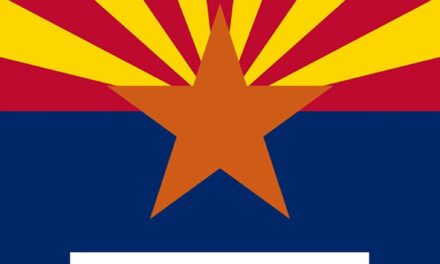
DaQuan Lawrence is a global human rights advocate and scholar activist. (Courtesy photo)
By DaQuan Lawrence
During the last several weeks, the Republic of South Africa has received much attention due to the social unrest that ensued following the legal decision to jail former president Jacob Zuma. Zuma is to serve 15 months in prison for contempt of court after defying a court order to provide evidence at a legal proceeding examining allegations of corruption during his term. Much of the framing from the international media has implied that the rallies, riots, demonstrations, and public behavior are due to angry Zuma supporters. Some reports have also discussed the economic circumstances within the state calling attention to public policies that have maintained apartheid level inequalities despite the democratic government system.
In a recent news article, I highlighted that amid July’s events and the public response, there were also reports of Black South Africans having conflict with Indian South Africans in the KwaZulu-Natal province. Per the reports, more than 300 individuals may have been killed in acts of racial violence around the province. The Phoenix residential area is north of Durban and has a predominant Indian population that has history of racial tension and conflict with Black South Africans due to apartheid era and pre-apartheid policies.
According to local accounts from Phoenix, innocent Africans who happened to be in the community became victims of vengeance and vigilantism, which is like the general experience of some Africans in India. Over the years, India has had similar incidents happen to Africans from Chad, Cote D’Ivoire, Nigeria, and South Africa, where they have been persecuted, harassed, and sometimes killed because they happened to be in a community that harbors deep suspicions about Africans. Those who were injured or killed in KwaZulu Natal were guilty in the eyes of these Indians for having the same skin complexion as South Africans who were looting and damaging properties, not due to any particular crime or misdeed.
Despite the lack of international media coverage, there were scenes of Indian groupings in Phoenix driving around, with weapons of war, looking for anyone with a black skin to punish – not the perpetrators themselves. The source of prejudice for what is African in the Indian community has been approached by many Indian scholars who believe such behavior is shameful for Indian progressives. Some claim that anti-African disdain is rooted in the Indian caste system, which ostracizes darker skinned Indians as they are considered “untouchable.”
South Africa’s intricate history influences the current political, economic, and social conditions within the nation. Both pre-and post-democratic South Africa largely maintain the economic segregation status quo of apartheid era South Africa, as so-called “native,” Bantu, colored and indigenous South Africans suffer human rights violations and double standards via public policy. Indians from the subcontinent of India were first brought to South Africa to serve as indentured servants but have since consolidated political and economic power within the framework of the international political economy. In South Africa, many Indians have gained greater economic and political standing than indigenous, or Bantu South Africans who have been largely excluded or ignored by the political system of South Africa.
Studies (see Seekings and Nattrass) have shown that the focus of social stratification public policies shifted from racial distinctions to class distinctions as the apartheid era gave way to the post-apartheid era. This shift implies that the inherent privileges in South African society that were affiliated with race, are now a result of and affiliated with the class South Africans belong to. This viewpoint is an outcome of the economic and social mobility some Black South Africans experienced since the implementation of democratic governance in the republic.
Since the “eradication” of the formal apartheid regime, an economically affluent Black “middle” class has emerged in South Africa, yet the large population of Black South Africans relegated to the under-or lower-classes persists as the nation has high levels of unemployment, underemployment, urban and rural poverty based on international standards, as well as social exclusion. As a result, different ethnic groups of Black South Africans were variably impacted by the same post-apartheid public policies, which increased social stratification and created divergent middle and lower economic classes.
South African political analyst, Xolani Dube, believes the rainbow nation “needs to develop South Africa from a humanistic side, instead of prioritizing the current economic development agenda, which serves the interest of economic elites.” Dube asserts that “public policy and governance should focus on the issues of the poor within the country instead of the elite’s issues.”
The economic conditions and social climate of South Africa has created circumstances where many Black citizens in both rural and urban areas are excluded from policies that disproportionately support the privileged classes of the South African society. The marginalized must fend for themselves despite any economic hardship they endure, even amid continual risk of arbitrary racial violence.
Global Human Rights Advocate and Scholar Activist. DaQuan Lawrence is a PhD student at Howard University.
Help us Continue to tell OUR Story and join the AFRO family as a member – subscribers are now members! Join here!
The post More on Social Unrest and Racial Conflict in KwaZulu Natal, South Africa appeared first on AFRO American Newspapers .











